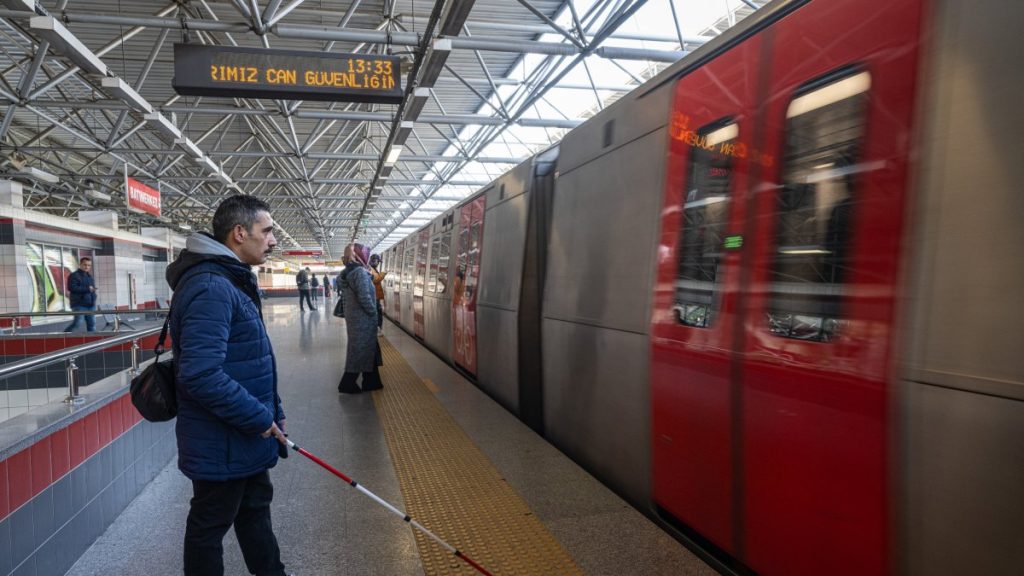In applications made by visually impaired citizens to the Human Rights and Equality Institution of Türkiye (HREIT), the most common violation decision was related to the absence of “tactile guide paths,” which provide assistance in transportation and navigation.
According to the information on HREIT’s website, 13 applications were made between 2022 and 2024, claiming discrimination and violation decisions were issued. The most frequent issue in the decisions was the lack of tactile guide paths, which are crucial for visually impaired individuals to navigate public spaces independently and safely.
HREIT’s rulings emphasize that all individuals should be treated equally before the law, as stated in Article 10 of the Constitution. The decisions also note that public institutions are required to take necessary actions to address discrimination, prevent its recurrence and ensure compliance with laws that mandate accessibility for people with disabilities. Specifically, public spaces must be accessible to those with disabilities, ensuring they can move from one place to another without facing obstacles, in line with both national and international regulations.
These decisions stress that urban life must be arranged to be accessible for people with disabilities and public buildings, streets, sidewalks, pedestrian crossings, open spaces and other social infrastructure must comply with these accessibility requirements.


